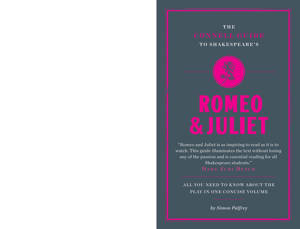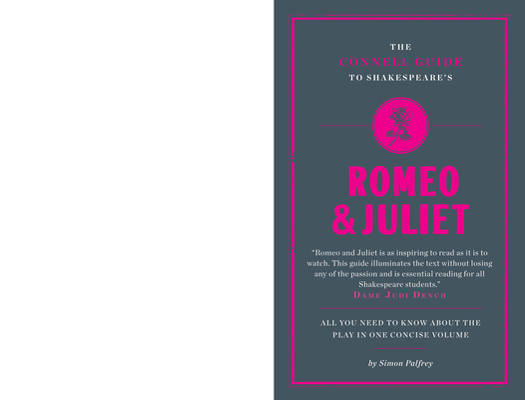
Door een staking bij bpost kan je online bestelling op dit moment iets langer onderweg zijn dan voorzien. Dringend iets nodig? Onze winkels ontvangen jou met open armen!
- Afhalen na 1 uur in een winkel met voorraad
- Gratis thuislevering in België vanaf € 30
- Ruim aanbod met 7 miljoen producten
Door een staking bij bpost kan je online bestelling op dit moment iets langer onderweg zijn dan voorzien. Dringend iets nodig? Onze winkels ontvangen jou met open armen!
- Afhalen na 1 uur in een winkel met voorraad
- Gratis thuislevering in België vanaf € 30
- Ruim aanbod met 7 miljoen producten
Zoeken
€ 12,95
+ 25 punten
Omschrijving
Romeo and Juliet is routinely called "the world's greatest love story", as though it is all about romance. The play features some of the most lyrical passages in all of drama, and the lovers are young, beautiful, and ardent. But when we look at the play, the lyricism and the romance are not really what drive things along. It is true that Romeo, especially early on in the play, acts like a young man determined to take his place in an immortal tale of love. Everything he says is romantic - but rather like an anniversary card is romantic. His words propel nothing, or nothing but sarcastic admonitions from his friends to forget about love and to treat women as they should be treated, with careless physical appetite. The world we have entered is rapacious more than romantic. Everyone knows something of this, from the film versions of the story if nothing else. Romeo and Juliet must fight for their love inside a culture of stupid hatreds. But it is not a simple case of love versus war, or the city against the couple. If it were, it would nicely reinforce clichés about true love, fighting against the odds. In this book Simon Palfrey suggests that the play Shakespeare actually wrote is more troubling than this. Juliet's passion - for all her youth, for all its truth - is at the very cusp of murderousness. Juliet is the world's scourge, in the sense that she will whip and punish and haunt it; she is also its triumph, in the sense of its best and truest thing. The deaths her love leads to are in no way avoidable, and in no way accidental. They are her inheritance, the thing she was born to. Of course she takes Romeo with her. But it is at heart her play.
Specificaties
Betrokkenen
- Auteur(s):
- Uitgeverij:
Inhoud
- Aantal bladzijden:
- 128
- Taal:
- Engels
- Reeks:
Eigenschappen
- Productcode (EAN):
- 9781907776083
- Verschijningsdatum:
- 1/09/2018
- Uitvoering:
- Paperback
- Formaat:
- Trade paperback (VS)
- Afmetingen:
- 109 mm x 175 mm
- Gewicht:
- 149 g

Alleen bij Standaard Boekhandel
+ 25 punten op je klantenkaart van Standaard Boekhandel
Beoordelingen
We publiceren alleen reviews die voldoen aan de voorwaarden voor reviews. Bekijk onze voorwaarden voor reviews.











